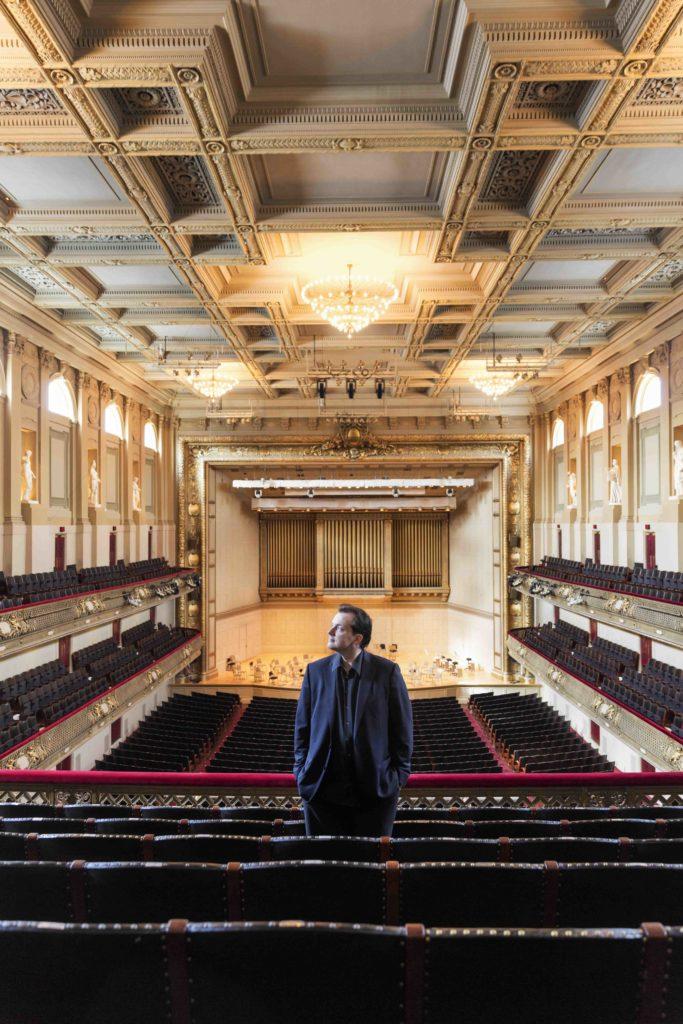By Amanda Hoover, news correspondent
Last week, Andris Nelsons took his place behind the podium at the Boston Symphony Orchestra (BSO), beginning his reign as the new music director and the youngest conductor in over a century.
At 35, Nelsons is the youngest conductor to lead the BSO since 1896. He took the place of recent music director James Levine, 71, who worked with the BSO until 2011 when health complications caused him to resign. After three years of auditioning candidates for the position, the board selected Nelsons for the 2014-2015 season.
“I would say this is one of the best concert halls in the world, if I may say the best concert hall in the United States, in my opinion. This is really a privilege,” Nelsons said in a Sept. 25 press release.
Both concertgoers and the BSO are excited about the new addition and the fresh spirit Nelsons can bring to the institution.
“We’re thrilled to have Andris Nelsons as the new music director,” Sarah Manoog, the BSO’s marketing director, said. “He’s one of the most sought-after conductors today, irrespective of his age. The fact that he’s 35 is terrific. Because of his youth, he brings all of this energy and enthusiasm to the BSO. He very well could help us to attract a younger, broader audience. That would be fantastic.”
Born and raised in Latvia, Nelsons began playing the trumpet in the local opera house at the age of 17. Eventually, he became the house’s director before expanding his career throughout Europe. His résumé boasts impressive stints with the Berlin and Vienna Philharmonics as well as with the City of Birmingham Symphony Orchestra in England.
Now, he’s bringing his vision and love for music to Boston. Nelsons first appeared at the BSO on Sept. 27 for an inaugural performance. Last week, he led a series of concerts featuring pieces from the composers Beethoven, Bartók and Tchaikovsky.
“He has a lot of energy. What I like about him is that he adds nuances to the piece. I don’t see that with other conductors,” Florian Fintelmann, a 35-year-old Bostonian, said. Fintelmann frequents the symphony and attended one of Nelsons’ first performances.
Many hope that Nelsons’ energy and youth will entice a new generation of audience members.
Emily Shaw, 18, a freshman and orchestra member at Wheaton College, doesn’t understand why more young people don’t take advantage of the BSO.
“It’s funny because classical music is really good. It’s really enriching,” Shaw said.
Students can take part in the BSO by purchasing a college card for $25 – much less expensive than general tickets that cost between $30 and $135 each before they get snatched up and resold on websites like StubHub with an inflated price tag. This one-time fee allows students to attend select performances throughout the 2014-2015 season that occur generally on weeknights, rather than on weekends when shows sell out.
Each season, the BSO sells about 14,000 college cards primarily to students and universities within a 10-mile radius. In the last 10 years, the college card has significantly increased the attendance of young people at the BSO, according to Manoog.
This year marked the start of a new partnership between the BSO and Northeastern University. The university purchased 800 college cards and offered them to students through the myNEU portal. The BSO established this partnership with other area schools such as Boston University, Massachusetts Institute of Technology and Berklee College of Music in past years and saw noticeable results in student attendance.
“We have been really successful getting younger people to the BSO in previous years [through partnerships],” Manoog said.
Nelsons’ next appearance will be a series of performances featuring the work of composers Gubaidulina and Sibelius from Nov. 6-9 and Nov. 11.
“Already, in my experience being in Boston and conducting, it feels like a big family,” Nelsons said. “The orchestra first, and then the audience – it feels like a united, joined family.”
Photo courtesy Marco Borggreve, BSO









